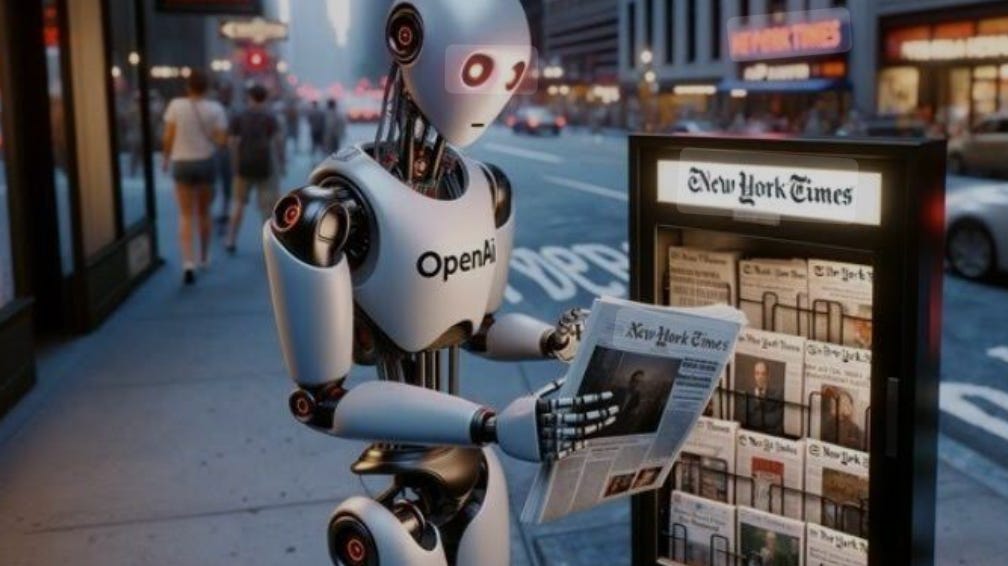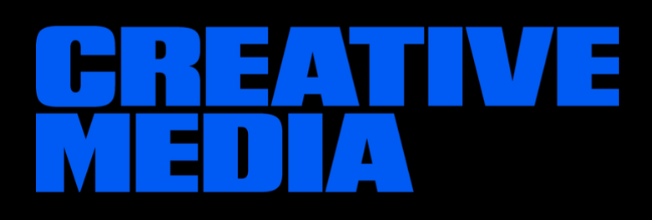GenAI & The Law: The New York Times' Chief Litigator Discusses Strategy In This Exclusive Expert Session
Experts Discuss The Latest Legal Strategies & Updates That Will Decide Generative AI's Rules of The Game (& They Go Well Beyond Copyright)
Ready for your Monday morning “brAIn” dump? This week’s “mAIn event” features another exclusive “must watch/listen” expert panel I recently moderated — this time, “Generative AI & the Law”, featuring The New York Times’ chief in-house litigator (who oversees the most high profile AI infringement case against OpenAI and Microsoft). Then, it’s the “fAIr Use Watch!” — the latest updates from the courts and Washington, D.C. Finally, it’s the “AI Litigation Tracker” — updates on key GenAI/media IP infringement cases by Partner Avery Williams of McKool Smith (access the “Tracker” via this link).
But first, listen to my recent podcast, The AI Royalty & Licensing Marketplace, featuring The New York Times & others now defining content pricing, key deal terms and overall economics and rules of the game. It’s “Insider” information you won’t find anyplace else (all in a span of 50 minutes).
I. The mAIn Event - Generative AI & The Law: Exclusive “Insider” Panel Featuring The New York Times’ Chief Litigator & Other Experts
I recently moderated a second exclusive Digital Hollywood expert panel — this time “Generative AI & The Law” — which featured The New York Times’ chief in-house litigator, Karen Chesley, together with Partner Avery Williams of McKool Smith (who writes this newsletter’s excellent “AI Litigation Tracker”), and Partner Sky Moore of Greenberg Glusker. It’s another “must watch/listen” session — a rare look into The New York Times’ overall litigation and licensing strategy, together with deep discussions about all key copyright issues (as well as the oft-overlooked rights of publicity and biometrics claims impacted by the non-consensual scraping of voices, images and movements of individuals). All in a concise 50-minute time frame.
Watch my exclusive session by clicking on the video link below (or watch it on YouTube via this link). Or listen to it on Apple Podcasts via the button below the video (or via this link). The session gives you a rare look behind the litigation curtain by the minds leading the charge on behalf of rightsholders.
What do you think? Send me your feedback at peter@creativemedia.biz.
II. “Fair Use” Watch!
(1) Anthropic - Massive Potential Damages In Bartz Case (Now That It’s A Class Action)
I recently reported that federal Judge William Alsup, who oversees the Bartz v. Anthropic AI copyright infringement case, certified the case as a class action lawsuit (this was after his important “fair use” decision I analyzed here). Alsup’s decision holds massive ramifications, including massive potential monetary damages against Anthropic.
To bring those possibilities to light, AI expert and law Professor Edward Lee asked Anthropic’s own LLM “Claude” to scope the potential size of monetary damages Anthropic faces if it loses the Bartz case. Professor Lee conducted over 50,000 Monte Carlo simulations to come up with his numbers. The result? Claude reported the following probabilities: (i) less than 5% for damages against Anthropic to be less than $1 billion, (ii) nearly 60% for damages to exceed $10 billion, (iii) 14% for damages to exceed $100 billion, and (iv) $873 billion on the high end of damages.
Yes, dear readers. These are the stakes in these AI copyright litigation cases. And it certainly doesn’t help Anthropic’s cause that it was just recently leaked that its AI was trained on content from many premium content owners who expressly prohibit such use.
(2) Senator Josh Hawley Isn’t Done Yet
I recently also highlighted Senator Josh Hawley’s sharp rebuke of the AI developer community at a key Senate Judiciary Subcommittee hearing — where the infamous running man said, “Today’s hearing is about the largest intellectual property theft in American history.” Now, Hawley — together with a shockingly bi-partisan group of other Senators — re-introduced the TRAIN Act (the Transparency and Responsibility for Artificial Intelligence Networks Act), which would enable rightsholders to compel AI developers to disclose the content/data they use for training.
Obviously, this goes right to the heart of the copyright infringement/”fair use” issue. Could it mean that the regulatory tide is turning? (Nah, just kidding. Congress will never get its act together while our “sovereign” sits on his throne).
(3) Will Porn Save Copyright?
Two separate adult film companies sued Meta for pirating their films for AI training. The porn industry previously helped accelerate new technology adoption. This time, will it accelerate the regulation of it?
III. AI Litigation Tracker: Updates on Key Generative AI/Media Cases (by McKool Smith)
Partner Avery Williams and the team at McKool Smith (named “Plaintiff IP Firm of the Year” by The National Law Journal) lay out the facts of — and latest critical developments in — the key GenAI-focused IP litigations below. All those detailed updates can be accessed via this link to the “AI Litigation Tracker”. McKool is a leader in both copyright and patent-related AI litigation — and all IP and general media, entertainment, AI and tech matters.
(1) Reddit v. Anthropic
(2) Kadrey v. Meta
(3) The New York Times v. Microsoft & OpenAI
(4) Ziff-Davis v. OpenAI
(5) Thomson Reuters v. Ross Intelligence
(6) In re OpenAI Litigation (class action)
(7) Dow Jones, et al. v. Perplexity AI
(8) UMG Recordings v. Suno
(9) UMG Recordings v. Uncharted Labs (d/b/a Udio)
(10) Getty Images v. Stability AI and Midjourney
(11) Universal Music Group, et al. v. Anthropic
(12) Sarah Anderson v. Stability AI
(13) Raw Story Media v. OpenAI
(14) The Center for Investigative Reporting v. OpenAI
(15) Authors Guild et al. v. OpenAI
NOTE: Go to the “AI Litigation Tracker” tab at the top of “the brAIn” website for the full discussions and analyses of these and other key generative AI/media litigations. And reach out to me, Peter Csathy (peter@creativemedia.biz), if you want to connect with McKool Smith) to discuss these and other legal and litigation issues. I’ll make the introduction.
About My Firm Creative Media
My firm and I represent media companies and rights-holders for generative AI content strategy and licensing, with deep relationships and market insights and intelligence second to none (including pricing and other key deal terms and overall state of play). We know the key players inside AI tech and pride ourselves in reaching THE key decision-makers and influencers in record time to execute, not just talk. We specialize in breakthrough business development and M&A and responsive & cost-effective legal services in the worlds of media, entertainment, AI and tech.
Reach out to me at peter@creativemedia.biz to explore working with us.
Send your feedback to me and my newsletter via peter@creativemedia.biz.







I am very very happy to read your newsletter every week, and I’m very excited that there might be a situation that the AI companies will agree to pay money for videos that are stolen and movies and then the future pay for intellectual property of movies and music but as of now, I don’t see them wanting to pay more than $100 an hour if they even willing to pay anything. I don’t understand the logic of it because I can see the writing on the wall that on trumpet could go almost bankrupt if they had to pay restitution, but they still are not interested in licensing or paying anything and I don’t get it. Smuel kleinman holder of 35000 films and TV shows also converting to 3 Billion photos.